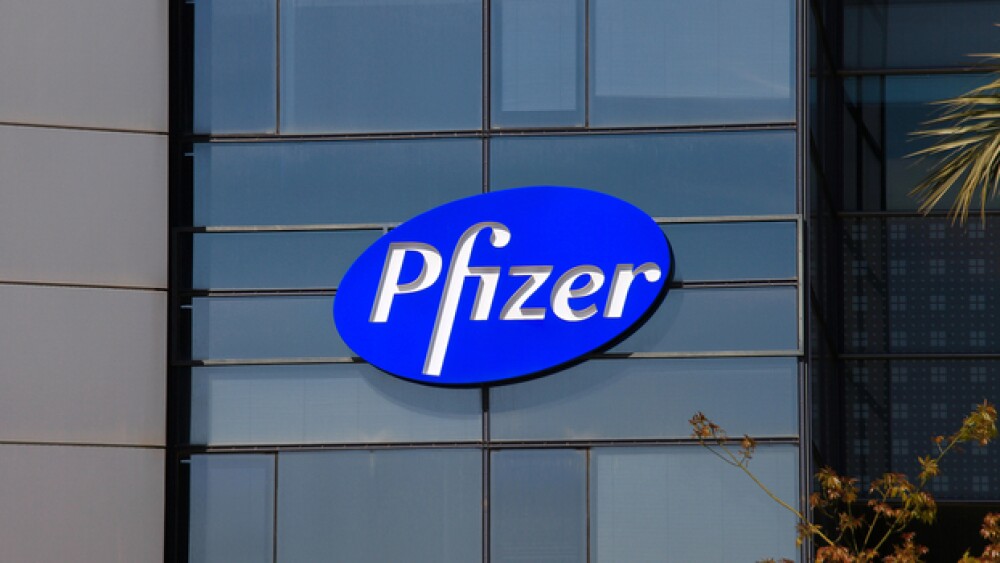Pfizer’s blockbuster rheumatoid arthritis drug Xeljanz, a JAK inhibitor, has been a strong performer for the company, bringing in $1.77 billion in revenue last year. But now the company has indicated it intends to make a change in its post-marketing study due to safety concerns.
StockStudio / Shutterstock.com
Pfizer‘s blockbuster rheumatoid arthritis drug Xeljanz, a JAK inhibitor, has been a strong performer for the company, bringing in $1.77 billion in revenue last year. But now the company has indicated it intends to make a change in its post-marketing study due to safety concerns.
In a statement earlier this week, Pfizer said it is shifting patients who were taking 10 mg doses twice daily to a lower 5 mg dose twice per day in the study required by the U.S. Food and Drug Administration (FDA). The 5 mg dose is the approved dose for adult patients with moderate to severe rheumatoid arthritis. Pfizer said the action was being taken following a notification from the Rheumatology Data Safety Monitoring Board about a safety concern in the 10 mg dosing arm in the post-marketing study.
The monitoring board said that patients who received the 10 mg dose “had a statistically and clinically important difference in the occurrence of pulmonary embolism, compared with patients in this study who were treated with a TNFi,” Pfizer said. Additionally, the DSMB noted an increase in overall mortality in the 10 mg twice daily treatment group compared to the tofacitinib 5 mg twice daily and TNFi treatment arms, Pfizer reported. The trial is expected to continue through to completion. The monitoring board said it “firmly believes” the risk-benefit profile of tofacitinib 5 mg twice daily in comparison to the TNFi group remains “appropriately balanced” in this study.
Pfizer said ongoing studies of tofacitinib in RA, juvenile idiopathic arthritis, psoriatic arthritis, and ankylosing spondylitis are expected to continue unchanged.
In its announcement, Pfizer said it will work with the FDA and other regulatory agencies to review the full results upon completion of this study.
The post-marketing study, A3921133, is an open-label study evaluating Xeljanz (tofacitinib) at two doses versus a tumor necrosis factor inhibitor (TNFi) control group. The study was designed to assess the risk of cardiovascular (CV) events, Pfizer said. Unlike previous trials, patients in this study were required to be at least 50 years of age and have at least one CV risk factor. Pfizer said all patients in the trial entered the study on stable doses of background methotrexate, an immunosuppressant. Pfizer said the results that were seen with the higher dose of Xeljanz in this study have not been seen in Pfizer analyses of other tofacitinib RA clinical trials or routine monitoring of post-marketing safety data, including our statistical analyses of the FDA Adverse Event Reporting System database.
In addition to rheumatoid arthritis, Xeljanz has also been approved by the FDA for psoriatic arthritis.
The concerns raised by the safety monitoring board regarding the higher dose of Pfizer’s JAK inhibitor raise questions about potential safety concerns for other drugs in this class. Just two days ago, Illinois-based AbbVie announced the FDA accepted for priority review its New Drug Application (NDA) for upadacitinib, a JAK inhibitor, for the treatment of adult patients with moderate to severe rheumatoid arthritis. AbbVie said it anticipates a regulatory decision in the third quarter of 2019. Upadacitinib is also under review by the European Medicines Agency for the treatment of adult patients with moderate to severe rheumatoid arthritis.





